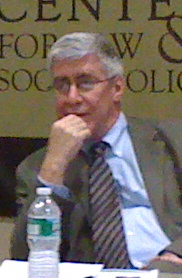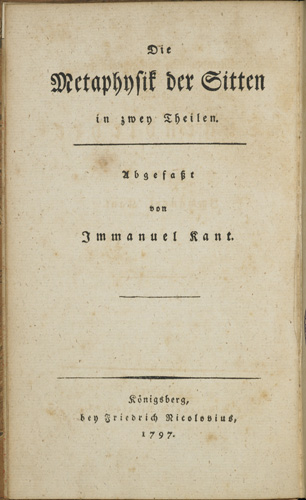Related Research Articles

Ethics or moral philosophy is a branch of philosophy that "involves systematizing, defending, and recommending concepts of right and wrong behavior". The field of ethics, along with aesthetics, concerns matters of value; these fields comprise the branch of philosophy called axiology.

Patriotism is the feeling of love, devotion, and sense of attachment to one's country. This attachment can be a combination of many different feelings, language relating to one's own homeland, including ethnic, cultural, political or historical aspects. It encompasses a set of concepts closely related to nationalism, mostly civic nationalism and sometimes cultural nationalism.

Courage is the choice and willingness to confront agony, pain, danger, uncertainty, or intimidation. Valor is courage or bravery, especially in battle.
In environmental philosophy, environmental ethics is an established field of practical philosophy "which reconstructs the essential types of argumentation that can be made for protecting natural entities and the sustainable use of natural resources." The main competing paradigms are anthropocentrism, physiocentrism, and theocentrism. Environmental ethics exerts influence on a large range of disciplines including environmental law, environmental sociology, ecotheology, ecological economics, ecology and environmental geography.
Loyalty is a devotion and faithfulness to a nation, cause, philosophy, country, group, or person. Philosophers disagree on what can be an object of loyalty, as some argue that loyalty is strictly interpersonal and only another human being can be the object of loyalty. The definition of loyalty in law and political science is the fidelity of an individual to a nation, either one's nation of birth, or one's declared home nation by oath (naturalization).
This Index of ethics articles puts articles relevant to well-known ethical debates and decisions in one place - including practical problems long known in philosophy, and the more abstract subjects in law, politics, and some professions and sciences. It lists also those core concepts essential to understanding ethics as applied in various religions, some movements derived from religions, and religions discussed as if they were a theory of ethics making no special claim to divine status.

Virtue ethics is an approach to ethics that treats the concept of moral virtue as central. Virtue ethics is usually contrasted with two other major approaches in ethics, consequentialism and deontology, which make the goodness of outcomes of an action (consequentialism) and the concept of moral duty (deontology) central. While virtue ethics does not necessarily deny the importance of goodness of states of affairs or moral duties to ethics, it emphasizes moral virtue, and sometimes other concepts, like eudaimonia, to an extent that other ethical dispositions do not.
In moral philosophy, deontological ethics or deontology is the normative ethical theory that the morality of an action should be based on whether that action itself is right or wrong under a series of rules and principles, rather than based on the consequences of the action. It is sometimes described as duty-, obligation-, or rule-based ethics. Deontological ethics is commonly contrasted to consequentialism, virtue ethics, and pragmatic ethics. In this terminology, action is more important than the consequences.

Mary Rosalind Hursthouse is a British-born New Zealand moral philosopher noted for her work on virtue ethics. Hursthouse is Professor Emerita of Philosophy at the University of Auckland.
Ethics involves systematizing, defending, and recommending concepts of right and wrong behavior. A central aspect of ethics is "the good life", the life worth living or life that is simply satisfying, which is held by many philosophers to be more important than traditional moral conduct.

Jeremy Waldron is a New Zealand professor of law and philosophy. He holds a University Professorship at the New York University School of Law, is affiliated with the New York University Department of Philosophy, and was formerly the Chichele Professor of Social and Political Theory at All Souls College, Oxford University. Waldron also holds an adjunct professorship at Victoria University of Wellington. Waldron is regarded as one of the world's leading legal and political philosophers.
Aristotle first used the term ethics to name a field of study developed by his predecessors Socrates and Plato. In philosophy, ethics is the attempt to offer a rational response to the question of how humans should best live. Aristotle regarded ethics and politics as two related but separate fields of study, since ethics examines the good of the individual, while politics examines the good of the City-State, which he considered to be the best type of community.

The Metaphysics of Morals is a 1797 work of political and moral philosophy by Immanuel Kant. In structure terms, it is divided into two sections: the Doctrine of Right, dealing with rights, and the Doctrine of Virtue, dealing with virtues.
David Leslie Miller is an English political theorist. He is Professor of Political Theory at the University of Oxford and an Official Fellow of Nuffield College, Oxford. He previously lectured at the University of Lancaster and the University of East Anglia. He received his Bachelor of Arts degree from the University of Cambridge, and his Bachelor of Philosophy and Doctor of Philosophy degrees from the University of Oxford. Previous works include Social Justice, On Nationality and Citizenship and National Identity. Miller is known for his support of a modest form of liberal nationalism.
Tamar Meisels is a Professor of Government and Policy in the Department of Political Science at Tel Aviv University, and a political theorist.
Professor David Simon Oderberg is an Australian philosopher of metaphysics and ethics based in Britain since 1987. He is Professor of Philosophy at the University of Reading. He describes himself as a non-consequentialist or a traditionalist in his works. Broadly speaking, Oderberg places himself in opposition to Peter Singer and other utilitarian or consequentialist thinkers. He has published over thirty academic papers and has authored six books: The Metaphysics of Good and Evil, Opting Out: Conscience and Cooperation in a Pluralistic Society, Real Essentialism, Applied Ethics, Moral Theory, and The Metaphysics of Identity over Time. Professor Oderberg is an alumnus of the Universities of Melbourne, where he completed his first degrees, and Oxford where he gained his D.Phil.

The Republic of Mahabad or the Republic of Kurdistan was a short-lived Kurdish self-governing unrecognized state in present-day Iran, from 22 January to 15 December 1946. The Republic of Mahabad, a puppet state of the Soviet Union, arose alongside the Azerbaijan People's Government, a similarly short-lived unrecognized Soviet puppet state.
Feminist ethics is an approach to ethics that builds on the belief that traditionally ethical theorizing has undervalued and/or underappreciated women's moral experience, which is largely male-dominated, and it therefore chooses to reimagine ethics through a holistic feminist approach to transform it.

Virginia Potter Held is an American moral, social/political and feminist philosopher whose work on the ethics of care sparked significant research into the ethical dimensions of providing care for others and critiques of the traditional roles of women in society.
Philosophy of sport is an area of philosophy that seeks to conceptually analyze issues of sport as human activity. These issues cover many areas, but fall primarily into five philosophical categories: metaphysics, ethics and moral philosophy, philosophy of law, political philosophy, and aesthetics. The philosophical perspective on sport originated in Ancient Greece, having experienced a revival in the latter part of the 20th century with the work of Paul Weiss and Howard Slusher.
References
Per Bauhn's personal webpage at Linnaeus University.